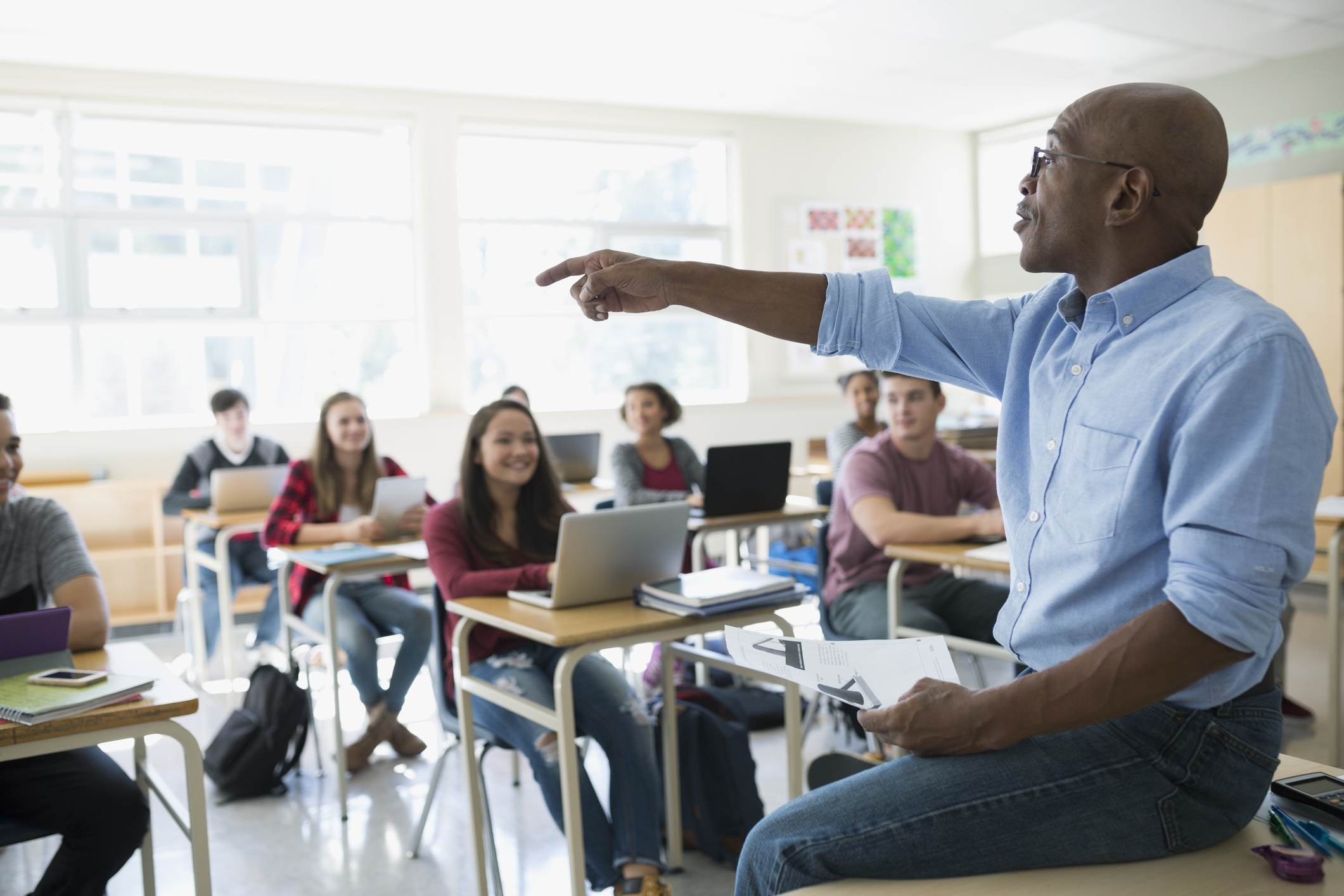Tailored Primary Science Tuition Singapore for Your Child’s Success
Tailored Primary Science Tuition Singapore for Your Child’s Success
Blog Article
Checking Out the Various Teaching Methods in Key Science Education Today
The landscape of key scientific research education is advancing, with various mentor strategies obtaining prestige in contemporary classrooms. Inquiry-based discovering, hands-on experiments, and the assimilation of modern technology are redefining how teachers involve young minds. In addition, collaborative methods and separated direction are being used to provide to the diverse needs of trainees, improving both involvement and understanding. As we take a look at these approaches, concerns emerge concerning their performance and the ramifications for future instructional techniques. What might these changes in approach mean for the next generation of students?
Inquiry-Based Learning
Inquiry-Based Learning (IBL) is an instructional strategy that urges pupils to discover scientific concepts through wondering about, investigation, and hands-on experimentation. This approach stresses the function of pupils as active individuals in their discovering, promoting important reasoning and problem-solving abilities. By involving with real-world concerns, students end up being interested and inspired, which enhances their understanding of clinical principles.
In IBL, teachers work as facilitators, assisting trainees as they browse their questions as opposed to supplying info directly. This student-centered method permits distinction, fitting various finding out styles and paces. Trainees develop abilities in formulating theories, developing experiments, and analyzing data, which are essential for clinical literacy.
In addition, IBL fosters partnership among trainees, encouraging them to share ideas and findings. This collective query advertises social abilities and a feeling of community within the class. Additionally, the procedure of inquiry motivates strength, as students discover to embrace failure as a stepping rock toward understanding.
Hands-On Experiments
Hands-on experiments are an essential element of reliable scientific research education, matching the principles of inquiry-based understanding. These experiments allow trainees to involve straight with scientific principles, fostering a deeper understanding with experiential understanding. By adjusting materials and observing results, young students can grasp abstract theories in substantial methods.
Such activities promote critical thinking and analytic skills, as students hypothesize results, conduct experiments, and assess results. This process encourages them to ask concerns, fine-tune their understanding, and develop a scientific frame of mind. Hands-on experiments can be tailored to diverse knowing styles, ensuring that all students have the possibility to engage meaningfully with the material.
Additionally, hands-on experiments commonly motivate partnership among peers, promoting synergy and interaction abilities. Functioning in groups makes it possible for pupils to share ideas, talk about findings, and gain from each other, which improves their total instructional experience.
Including hands-on experiments into the primary scientific research curriculum not only improves the discovering atmosphere but additionally cultivates a long-lasting rate of interest in science. By proactively joining their education, pupils are extra likely to establish an interest for scientific inquiry that prolongs beyond the class.

Innovation Combination
Incorporating technology right into key scientific research education has actually ended up being significantly important in cultivating pupil engagement and boosting learning results. Using electronic tools, such as interactive simulations, digital labs, and educational software application, offers trainees with opportunities to check out clinical ideas in ingenious methods. These resources help with a deeper understanding of complex topics by permitting students to envision and control variables that would certainly be not practical in a typical class setup.
In addition, modern technology assimilation motivates customized learning experiences. Students can progress at their very own speed, reviewing challenging principles via multimedia sources, which satisfy different understanding designs. This versatility not only supports specific development but also cultivates a feeling of autonomy in students.
Furthermore, technology serves as a bridge to real-world scientific research, linking trainees with current research study and professional contributions. Accessibility to on the internet data sources and scientific journals widens trainees' perspectives on scientific inquiry and cultivates essential believing skills.
Collaborative Understanding
Joint knowing plays an essential function in key science education and learning by promoting synergy and communication abilities amongst pupils. This method urges learners to collaborate, share understanding, and take part in analytical, which boosts their understanding of scientific principles. By joining team activities, trainees find out to articulate their ideas, pay attention to diverse viewpoints, and negotiate services, every one of which are necessary skills in both real-world and scholastic contexts.

Study indicates that joint knowing can lead to boosted inspiration and engagement in science topics, as pupils find pleasure in common experiences (primary science tuition Singapore). In addition, this method prepares trainees for future joint endeavors, furnishing them with the abilities essential for reliable teamwork in college and specialist settings. Ultimately, embracing collaborative discovering in key science education can substantially improve the understanding experience and image source advertise a deeper understanding of scientific inquiry
Distinguished Direction

Differentiated guideline can show up in different means, such as varying the content, processes, or products of discovering. As an example, teachers may use tiered projects that supply differing degrees of intricacy, allowing pupils to operate at their particular readiness degrees. Furthermore, versatile organizing approaches can facilitate cooperation amongst pupils with various capabilities, cultivating peer discovering.
Analysis plays an important function in this strategy, as it notifies guideline and assists teachers comprehend each trainee's special demands. Formative assessments, such as quizzes and observations, can assist teachers in readjusting their approaches to boost discovering results. primary science tuition Singapore. Ultimately, by applying separated instruction in main science education, instructors can grow a more equitable and efficient learning atmosphere, empowering all trainees to reach their complete potential in recognizing scientific phenomena
Conclusion
In summary, the varied teaching strategies in key scientific research education and learning, including inquiry-based knowing, hands-on experiments, modern technology integration, collaborative learning, and differentiated instruction, jointly add to a much more effective learning atmosphere. These techniques promote critical reasoning, analytic abilities, and a deeper comprehension of scientific principles. By implementing these methods, instructors can create helpful and appealing class that address the diverse requirements of students, ultimately promoting a lifelong interest in science and boosting academic success.
Inquiry-Based Understanding (IBL) is an instructional strategy that motivates students to explore clinical ideas with wondering about, examination, and hands-on experimentation.Collaborative discovering plays an essential duty in key science education by fostering teamwork and communication abilities why not find out more among pupils.Research study indicates that collective knowing can lead to enhanced inspiration and interaction in scientific research subjects, as students locate enjoyment in shared experiences.In fostering a comprehensive discovering environment, separated instruction arises as a key strategy to suit the varied needs and capacities of pupils in key science education and learning. Eventually, by executing differentiated instruction in key science education and learning, educators can grow a more effective and fair knowing environment, empowering all pupils to reach their full potential in recognizing clinical sensations.
Report this page